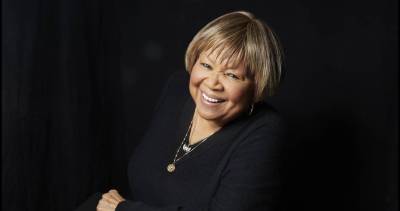Mediocre man
CHICAGO””A month from now, Will Ferrell will mark the 10th anniversary of his debut on Saturday Night Live. It's been a good decade. He's gone from being a member of an acting ensemble that appeared to be part of producer Lorne Michaels's SNL swan song to being one of the most successful alumni of that venerable series.
In a Chicago hotel room, Ferrell says that while most new members of the SNL troupe are under a lot of pressure to perform, the rookies of the 1995–96 season (a group that also included Darrell Hammond, who is still with the show) assumed they had nothing to lose. “I don't think I really felt the pressure that most people feel when they get that job,” he recalls, “if only because there were eight or nine of us that were hired at the same time. We were essentially a new cast that came in together. What they usually do is they add a new person or perhaps two people every year and you don't really get to participate. So you can feel left out. But we were all kind of thrown in there. We didn't have any choice but to move forward, despite the inevitable criticism. We knew that the show was either going to get cancelled after this cast or we were going to bring it back a little bit. So no one was really keeping a scorecard as to how you were doing.”
Ferrell started slowly in the cast of the 21st season, one that was working in the long shadow of the previous year's actors, a list that included Adam Sandler, Mike Myers, and Chris Farley. (David Spade and Tim Meadows were the only holdovers among the show's veterans.) However, within three years he had gained the kind of critical and audience attention that usually leads to a film career. He was nominated for an Emmy in 2001, and left in 2002. By the end of 2003, he had starred in two hit comedies, Old School and Elf. Then in 2004, he partnered with former SNL writer Adam McKay on Anchorman: The Legend of Ron Burgundy. The film made almost US$100 million on an investment of $26 million, and Ferrell and McKay were hired to make a second comedy.
Talladega Nights: The Ballad of Ricky Bobby, which opens Friday (August 4), takes the same loose approach to its Ferrell/McKay screenplay, with McKay directing and Ferrell and costars John C. Reilly and Sacha Baron Cohen improvising most of their scenes. Ferrell plays NASCAR driver Ricky Bobby, with Reilly playing his best friend and team member and Cohen playing a French Formula 1 driver who switches to NASCAR in order to beat Bobby.
The film could end up being part of a trilogy. Ferrell says that both Anchorman and Talladega Nights are focused on the problems that confront individuals who have undeserved egos. He explains that he and McKay discovered early in the process that it's always good to have a story to tell the studios, even if you plan to make things up as you go along.
“We see this as being the first two steps in our 'mediocre man' trilogy, because we love this whole idea of people who think they are great but are not and are actually far from it. It is endlessly fascinating to us. There is something really humorous about unearned confidence that makes us laugh. I think sports movies lend themselves more to that kind of story. However, once you start talking about story in the same sentence as comedy, it can be a struggle. The studios are always preaching story, but I have never been a big believer that people care about the story. I don't think that when you go to a comedy, you walk out thinking 'That was an amazing story. Wow. That changed my life, that story.' It's more likely that you are going to say, 'That was a funny line' or 'Do you remember when this happened?'
“At the same time, someone at the studio is inevitably going to say, 'I wish it had a bit more story' or 'I think you should cut this because it doesn't make sense in the context of the story,' and you have to tell them, 'We know it doesn't make sense; it is just a funny thing.' When you are watching a comedy you don't go, 'That does not make sense to the film.' We work with [producer] Judd Apatow a lot, and he is always a great taskmaster. One of the things that he did when he was directing The 40-Year-Old Virgin was he was able to create a story that allowed the comedy to flow from it. We are trying to graduate to that level.”
Ferrell says he and McKay felt that although their priority had to be the comedy, they also wanted the races to look real. He adds that they were writing the script as car-racing neophytes before they were given permission to shoot at tracks. When NASCAR got involved in the picture, he and McKay felt they still had to stick with their original approach.
“Our ignorance kind of allowed us to go places that if we knew too much we would have said, 'They [drivers] would never say that,' but instead we just stuck to whatever appealed to us as being a little crazy. We felt that we could do that and still make all the racing shots look real and intense. We had an amazing second-unit director who has done a lot of car stuff, and we wanted that part of the movie to look amazing because it really is amazing when you actually go to the races.”
If there has been a holy grail for the more successful SNL grads, it's an ambition to try their hand at dramatic features. Some do better than others. Dan Aykroyd won an Oscar nomination for Driving Miss Daisy, but Bill Murray almost cut his career short by moving too quickly from comedy to The Razor's Edge. Mike Myers has stuck to what he knows best since his attempt at drama with the film 54. Ferrell is trying out a dramatic role in his next movie, Stranger Than Fiction, but feels he can still move back to comedy if it doesn't work out.
“It is just a fun thing for me to explore,” he says. “I have been approached by writers and studios to do other things outside of comedy. It wasn't a burning need or anything, but that having been said, it is fun to do other things. I am going to hopefully do a bit of both and see what happens, but ultimately comedy is where I will continue to live.”
Ferrell has been living with comedy for a while now. He says that it was one of two directions he thought of taking when he was growing up. The other was working on the sports side of broadcast journalism. He chose comedy because it seemed as though it would take him where he wanted to be a little faster.
“I grew up playing a lot of sports and I loved comedy too. I knew that I wanted to do something in front of the camera, and sports journalism seemed a little more legitimate than being a comedian or an actor. So that is what I studied at college and that is what I thought I was going to be doing. Then I realized that I didn't want to have to start out in Yuma, Arizona. I thought 'That is a long road, so I might as well try comedy.'?”















Comments